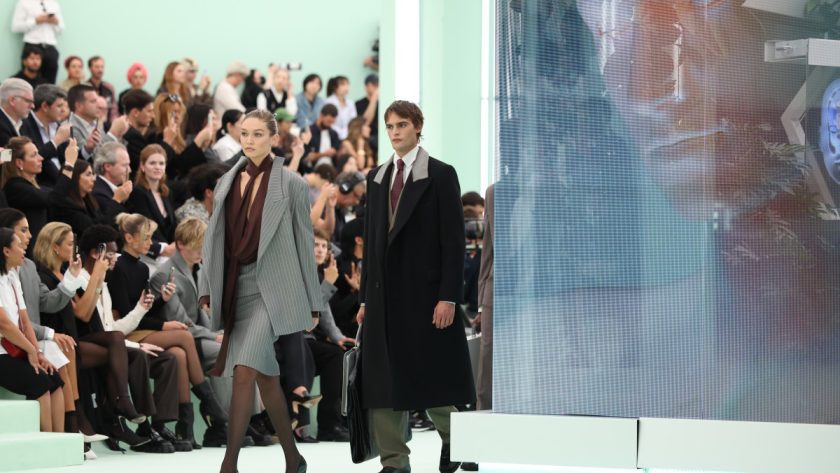Photo: Daniele Venturelli/WireImage
These are the stories making headlines in fashion on Friday.
Hugo Boss reports double-digit growth in Q3
Hugo Boss reported that its revenues increased 15% to €1.03 billion ($1.1 billion) in Q3. This is the strongest third quarter in the brand’s history, chief financial officer Yves Mueller said on Thursday. In a statement, Hugo Boss CEO Daniel Grieder credited the brand’s growth to star-studded marketing campaigns, high-profile fashion events and “brand, product, and distribution initiatives” as the brand moves from a men’s formalwear specialist to a 24/7 lifestyle house. Additionally, Boss menswear grew 12%, Boss womenswear grew 24% and the brand’s more casual Hugo line grew 25%. {WWD/paywalled}
Amazon to close its brick-and-mortar apparel stores
Amazon will close its two brick-and-mortar Amazon Style stores by Nov. 9 to focus on its online fashion operation, Retail Dive reports. Amazon’s move away from brick-and-mortar apparel stores comes after the company closed all of its standalone bookstores and non-grocery stores last year. Amazon Style locations used technology to offer suggestions to customers based on their preferences, but some critics found the model confusing and experts warned a specialty apparel store may be more complicated. Amazon is now mainly focusing on physical retail spaces for grocery stores. {Retail Dive}
Inside Estée Lauder Companies’ current slowdown
Estée Lauder Companies reported that its sales were down 10% to $3.5 billion in the first quarter, which triggered the stock to drop more than 24%. ELC was trading at $370 per share in December 2021, which has now dropped to $113 per share (and some speculate it could go as low as $70 per share). Estée Lauder has pointed to the macro environment for its troubles, specifically a slower return in Chinese customers, but competitors like L’Oréal saw its overall numbers grow even as it experienced a 15% drop in China. Puck‘s Lauren Sherman explores the past success of the company (largely thanks to Leonard Lauder and more recently Fabrizio Freda), the present reality of falling sales and the longstanding company’s uncertain future. {Puck/paywalled}
Fast-fashion brands experiencing a mergers-and-acquisitions frenzy
Asos reported this week that its annual sales dropped 10% year-on-year while losses widened from £32 million ($39 million) to £297 million ($362 million). The brand is also forecasting a 5-10% sales decline in the coming year, reflecting overall challenges in the UK’s digital fast-fashion market. Boohoo Group has also experienced slowing sales and both companies are facing pressure to cut costs and solve excess inventory issues. The return to in-person shopping, as well as the meteoric rise of Shein, have hit the fast-fashion retailers hard, leaving Asos reportedly considering the sale of Topshop (which it acquired in 2021). Boohoo stakeholder Frasers Group also announced its sale of Missguided to Shein on Monday, just over a year after acquiring it. “You need to have a really tight edit with continual newness because it gives people a reason to buy again and again,” Jacqueline Windsor, head of retail at PwC UK, told Business of Fashion. “It’s not only stores, or only online, it’s about finding the right balance.” {Business of Fashion/paywalled}
Many brands are absent amid garment worker protests for higher wages
Protests in Bangladesh escalated this week, reportedly leaving at least two dead. Workers are demanding a wage increase that factory owners say they cannot afford, and negotiations “ultimately boil down to economics dictated by companies not in the room: fashion brands that express support for decent wages but won’t pay more for the products they ask factories to make,” Rachel Cernansky writes for Vogue Business. Bangladesh is the second-largest garment-producing country in the world yet it pays the lowest wages in the industry: 8,300 taka, or about $75 a month. Vogue Business reached out to some of the largest buyers in the industry, and although most brands expressed support for the movement for fair wages, none responded to Vogue Business’s questions with detailed steps they have taken to ensure better wages and physical safety for workers engaging in protest. {Vogue Business/paywalled}
Want the latest fashion industry news first? Sign up for our daily newsletter.



